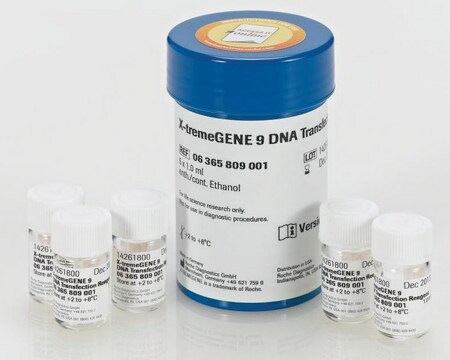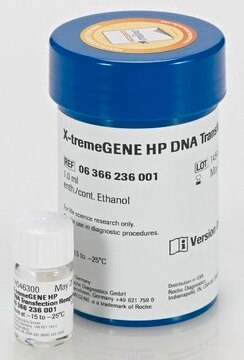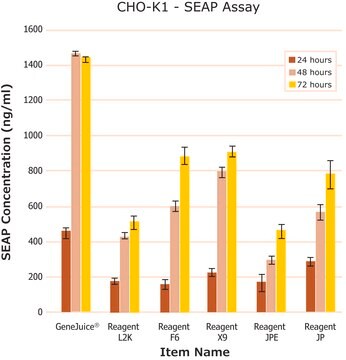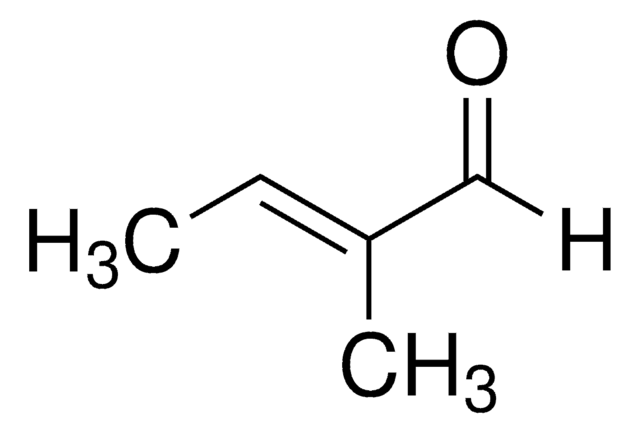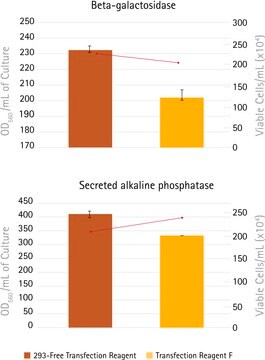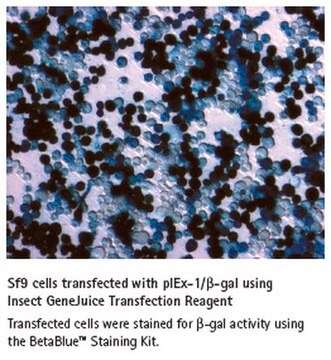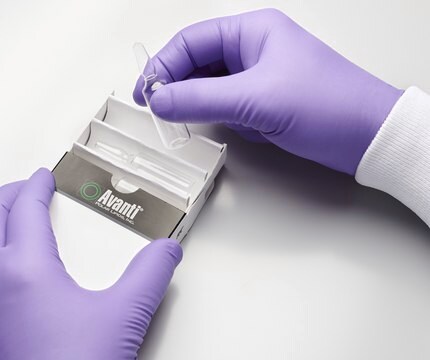XTG360-RO
Roche
X-tremeGENE™ 360 Transfection Reagent
Universal polymer reagent for delivering DNA, siRNA, miRNA and CRISPR/RNP to many cell lines
Synonym(s):
transfection reagent
About This Item
Recommended Products
grade
for molecular biology
form
liquid (aqueous solution)
packaging
pkg of 0.4 mL (08724105001)
pkg of 1.0 mL (08724121001)
pkg of 5 × 1.0 mL (08724156001)
manufacturer/tradename
Roche
technique(s)
transfection: suitable
storage temp.
−20°C
General description
Application
- Designed to transfect a broad range of eukaryotic cells, many cell lines not transfected well by other reagents, and hard-to-transfect cell lines, such as asK-562 and HepG2.
- Can be successfully used in a variety of applications, such as gene expression analysis using transiently transfected cells, generating of stable cell lines, expression of siRNA for gene knockdown studies, and CRISPR gene-editing tools.
- Produces minimal cytotoxicity or changes in morphology when adequate numbers of cells are transfected, eliminating the requirement to change media after adding the transfection complex.
- Suitable for transient and stable transfection.
- Functions well in the presence or absence of serum.
Features and Benefits
- Peak performance in a broad range of cell types
- Suitable for multiple applications
- Efficient delivery of plasmid DNA, siRNA/miRNA and CRISPR/Cas9 components
Quality
Physical form
Other Notes
Legal Information
Signal Word
Danger
Hazard Statements
Precautionary Statements
Hazard Classifications
Eye Irrit. 2 - Flam. Liq. 2
Storage Class Code
3 - Flammable liquids
WGK
WGK 1
Flash Point(F)
61.7 °F
Flash Point(C)
16.5 °C
Certificates of Analysis (COA)
Search for Certificates of Analysis (COA) by entering the products Lot/Batch Number. Lot and Batch Numbers can be found on a product’s label following the words ‘Lot’ or ‘Batch’.
Already Own This Product?
Find documentation for the products that you have recently purchased in the Document Library.
Customers Also Viewed
Articles
Automation is used for many applications to reduce variation caused by manual handling and to obtain reproducible results in high-throughput assays. High-throughput applications, such as knockdown studies or target screenings, often include cell transfection.
Small inhibitory RNAs (siRNAs) have become the focus of interest in many laboratories. For the first time, these molecules offer an easy way to knock down the expression of selected genes in mammalian cells without having to resort to classical gene knockout techniques.
Transfection is the introduction of DNA, RNA, or proteins into eukaryotic cells and is used in research to study and modulate gene expression. Thus, transfection techniques and protocols serve as an analytical tool that facilitates the characterization of genetic functions, protein synthesis, cell growth and development.
This brief webinar provides an overview of what transfection is and the methods that are used to introduce DNA or RNA into eukaryotic cells.
Protocols
X-tremeGENE™ siRNA Transfection Reagent Protocol & Troubleshooting
Plate cells approx. 24 hours before transfection making sure cells are at optimal concentration (70 – 90 % confluency).
Lentiviruses represent a powerful tool in research applications to transduce a wide range of cell types.
Transient co-transfection of plasmids is a method that is commonly employed for cellular protein-protein interaction studies, transcription factor studies, and gene knockdown studies using shRNA encoding plasmids.
Our team of scientists has experience in all areas of research including Life Science, Material Science, Chemical Synthesis, Chromatography, Analytical and many others.
Contact Technical Service